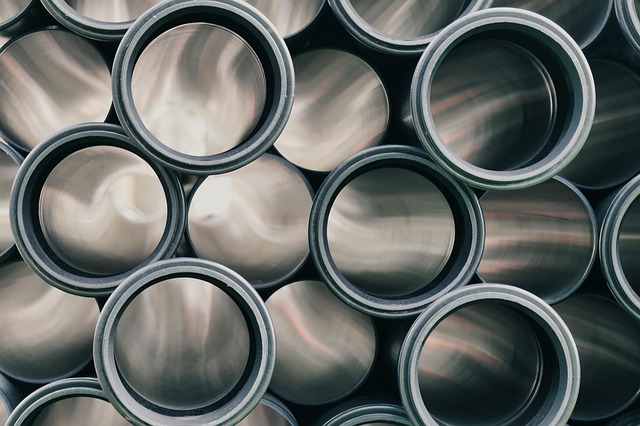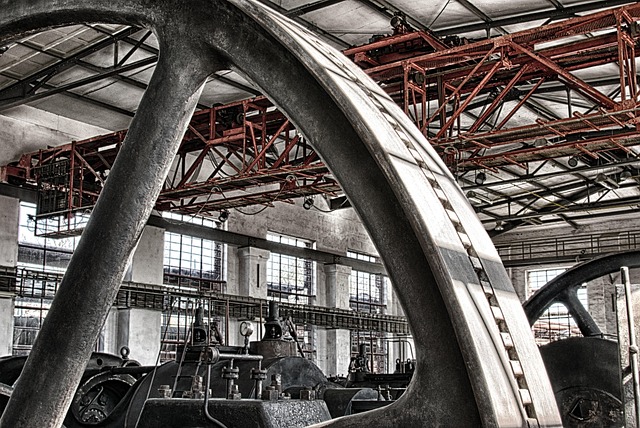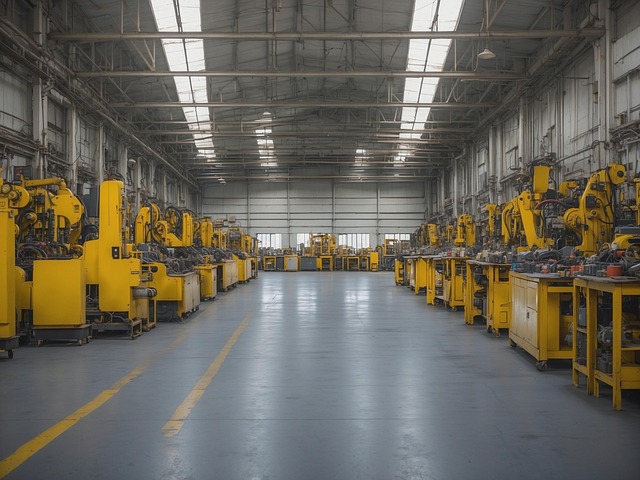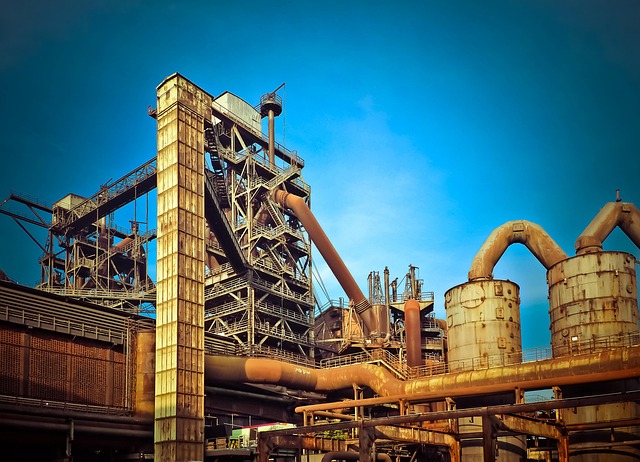In Denver's dynamic real estate market, understanding industrial property loans is crucial for investors. These specialized loans offer flexible terms, higher loan-to-value ratios, and customized repayment structures tailored to commercial and industrial properties. Investors in logistics, distribution, and manufacturing require knowledge of local market dynamics, zoning regulations, and specific project requirements. Lenders evaluate rental income, property appreciation, and investment viability to secure loans with eligibility criteria focusing on creditworthiness and profitable properties. Options include conventional mortgages, government-backed loans, construction loans, and hybrid loans. Lenders consider property type, market trends, borrower financial health, and cash flow potential for informed decisions in Denver's industrial sector. Successful investments require strategic planning, collaboration with experts, and careful navigation of complexities like high down payments and specialized management.
“Unleash the potential of Denver’s vibrant industrial real estate market with an informed guide to securing industrial property loans. This comprehensive article navigates the landscape of commercial financing, offering insights into various loan options tailored for Denver’s bustling industrial sector. From understanding local loan dynamics to deciphering eligibility criteria and exploring application processes, we demystify every step. By weighing the benefits and challenges, investors can strategically embrace industrial property loans in Denver, fostering sustainable growth.”
- Understanding Industrial Property Loans in Denver
- Eligibility Criteria for Commercial Real Estate Financing
- Types of Loan Options for Industrial Properties
- Key Factors Lenders Consider When Approving Loans
- The Application Process and Required Documents
- Benefits and Challenges of Investing in Industrial Property with Loans
Understanding Industrial Property Loans in Denver

In the dynamic real estate market of Denver, understanding industrial property loans is crucial for investors looking to navigate the landscape. Industrial property loans, specifically tailored to meet the unique needs of commercial and industrial real estate, offer a financial backbone for projects that range from warehouse conversions to manufacturing facilities. These loans are designed to accommodate the specific requirements of such properties, including higher loan-to-value ratios, flexible terms, and customized repayment structures.
Denver’s thriving industrial sector has attracted investors seeking lucrative opportunities in logistics, distribution, and manufacturing. Consequently, securing an industrial property loan in Denver involves a comprehensive understanding of local market dynamics, zoning regulations, and the specific needs of industrial real estate projects. Lenders in this space offer expertise in evaluating the potential for rental income, property appreciation, and the long-term viability of industrial investments, ensuring investors make informed decisions in one of the most vibrant markets for commercial real estate loans.
Eligibility Criteria for Commercial Real Estate Financing

When considering an industrial property loan in Denver, understanding the eligibility criteria is essential for investors looking to secure financing for their real estate ventures. Lenders typically assess several factors to determine a borrower’s suitability and creditworthiness. These include the borrower’s personal or business financial history, debt-to-income ratio, and down payment amount. A solid credit profile with minimal delinquencies or defaults significantly increases the chances of approval.
Additionally, lenders carefully examine the property itself. The industrial real estate must have a clear title, be free from significant structural issues, and demonstrate potential for profitability. Lenders often prefer properties in stable locations with strong market demand. Demonstrating a comprehensive understanding of the local real estate market and providing detailed financial projections can enhance an application’s competitiveness, making it easier to secure an industrial property loan in Denver.
Types of Loan Options for Industrial Properties

When considering an industrial property loan in Denver, investors have several options tailored to meet the unique needs of this sector. One popular choice is a conventional loan, which can be further categorized into fixed-rate and adjustable-rate mortgages (ARMs). These loans are suitable for those seeking long-term stability with consistent monthly payments. On the other hand, government-backed loans, such as those offered by the USDA or SBA, cater to specific types of industrial projects, providing advantages like lower down payment requirements and flexible terms.
For more specialized needs, construction loans are ideal when acquiring an industrial property involves significant renovation or new development. These loans provide funding in stages, aligning with the project’s progress. Additionally, some lenders offer hybrid loans that combine features of both conventional and construction financing, providing flexibility during different phases of an industrial property investment cycle.
Key Factors Lenders Consider When Approving Loans

When it comes to securing a loan for real estate investment properties, lenders carefully evaluate several factors to ensure the borrower’s ability to repay. Key considerations include the property type, location, market trends, and the borrower’s financial standing. Lenders often specialize in certain niches, such as industrial property loans Denver, which requires an in-depth understanding of local industries and economic forecasts.
The property’s potential for generating rental income or positive cash flow is a significant indicator of repayment capability. Lenders will assess the area’s tenant demand, average rental rates, and property maintenance costs to gauge profitability. Additionally, the borrower’s credit history, debt-to-income ratio, and the ability to make substantial down payments can greatly influence loan approval decisions.
The Application Process and Required Documents

When applying for an industrial property loan in Denver, the process is designed to assess your financial health and the viability of your investment. Lenders will require a comprehensive set of documents to facilitate this evaluation. Firstly, expect to provide detailed financial statements, including tax returns, bank statements, and business income records. These documents offer insight into your creditworthiness and cash flow management abilities.
Additionally, lenders will request property-specific information such as appraisals, market analysis reports, and lease agreements (if applicable). For industrial property loans in Denver, a solid understanding of the local market dynamics is crucial. Lenders assess not only the potential returns but also the stability of the surrounding area, ensuring your investment aligns with the region’s economic trends and development plans.
Benefits and Challenges of Investing in Industrial Property with Loans

Investing in industrial property with loans in Denver offers a unique set of benefits and challenges. One of the primary advantages is the potential for high returns. Industrial real estate is often seen as a stable and lucrative investment due to its essential role in supporting local economies, manufacturing, and logistics. This sector typically experiences lower vacancy rates compared to other property types, ensuring consistent cash flow through rental income. Additionally, Denver’s thriving economy and strategic location make it an attractive market for industrial investments, with strong demand from e-commerce and distribution companies driving up property values.
However, challenges are also present. Industrial property loans often require significant down payments and carry higher interest rates than residential mortgages. This can be a considerable barrier for first-time investors or those with limited capital. Furthermore, maintaining and managing industrial properties involve specialized knowledge and skills, such as understanding supply chain logistics and tenant needs. Property values in this sector can also be sensitive to economic shifts, technological advancements (like automation), and changes in consumer behavior. Therefore, careful research, financial planning, and potentially partnering with experienced professionals are essential for successful industrial property investment and loan management in Denver.
Investing in industrial property with loans, particularly in Denver’s vibrant real estate market, offers a compelling opportunity for savvy investors. By understanding the various loan options available, eligibility criteria, and key factors lenders consider, you can navigate the process effectively. Whether you’re drawn to the bustling industrial landscape or seeking long-term financial gains, an informed approach to securing industrial property loans in Denver will help ensure a successful investment journey.
